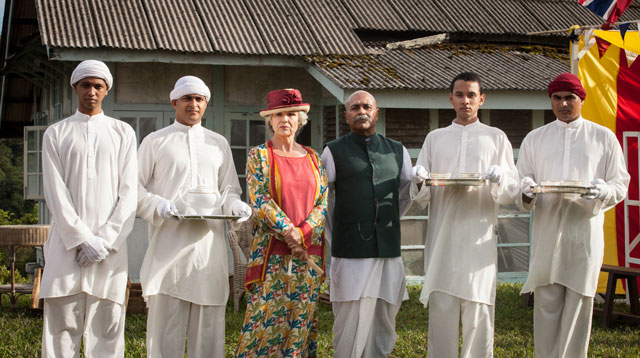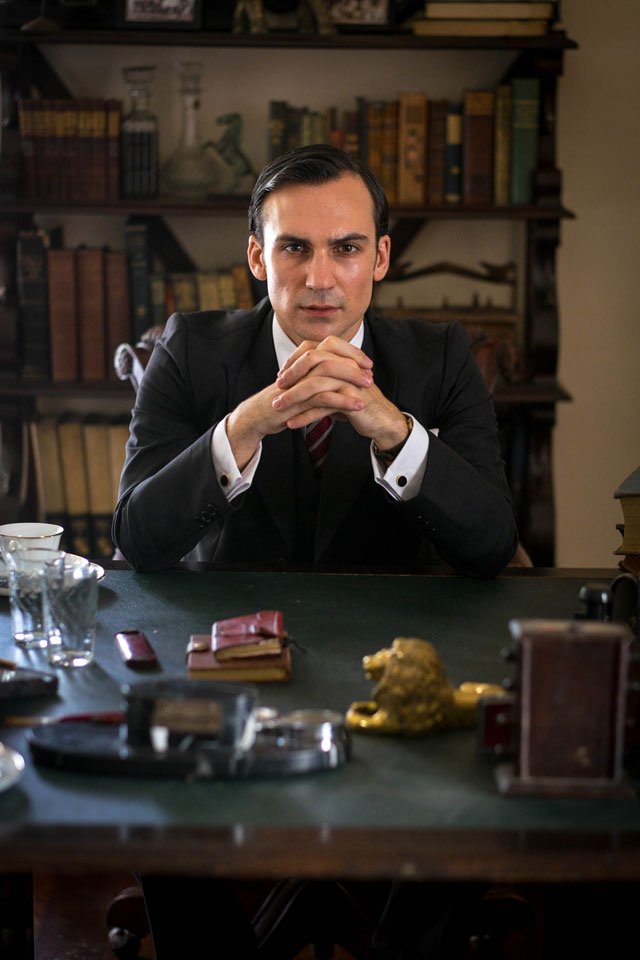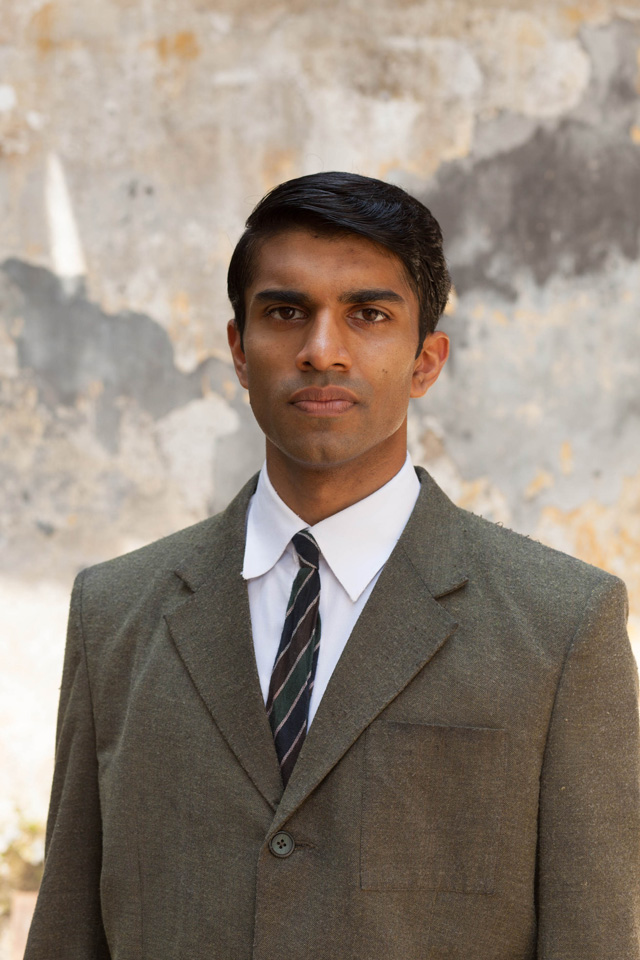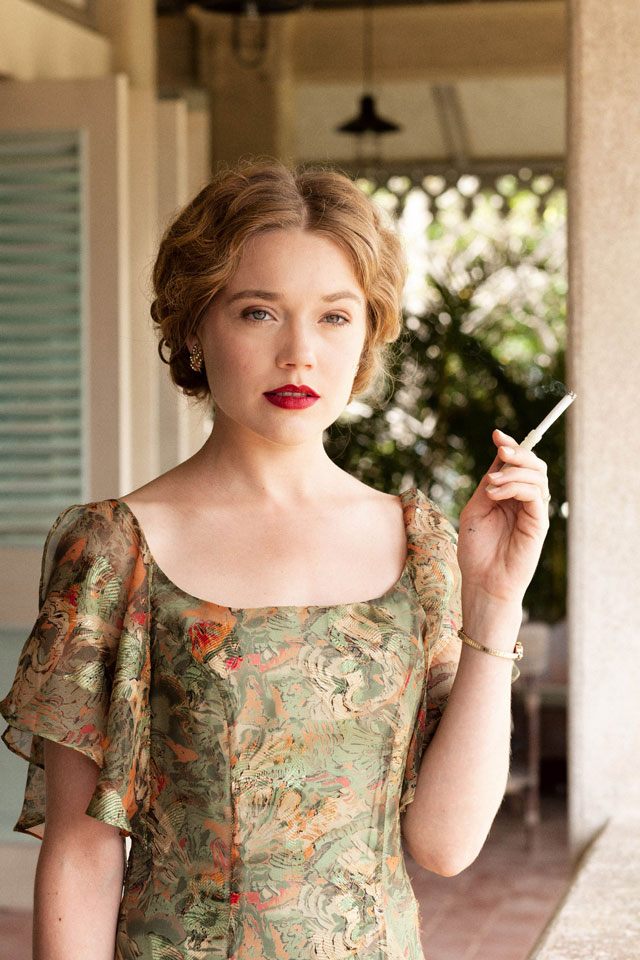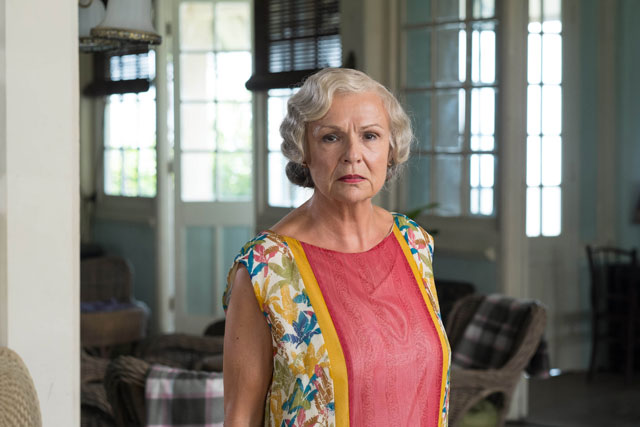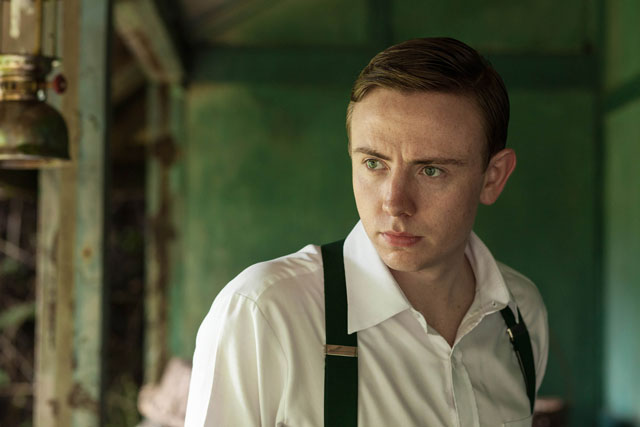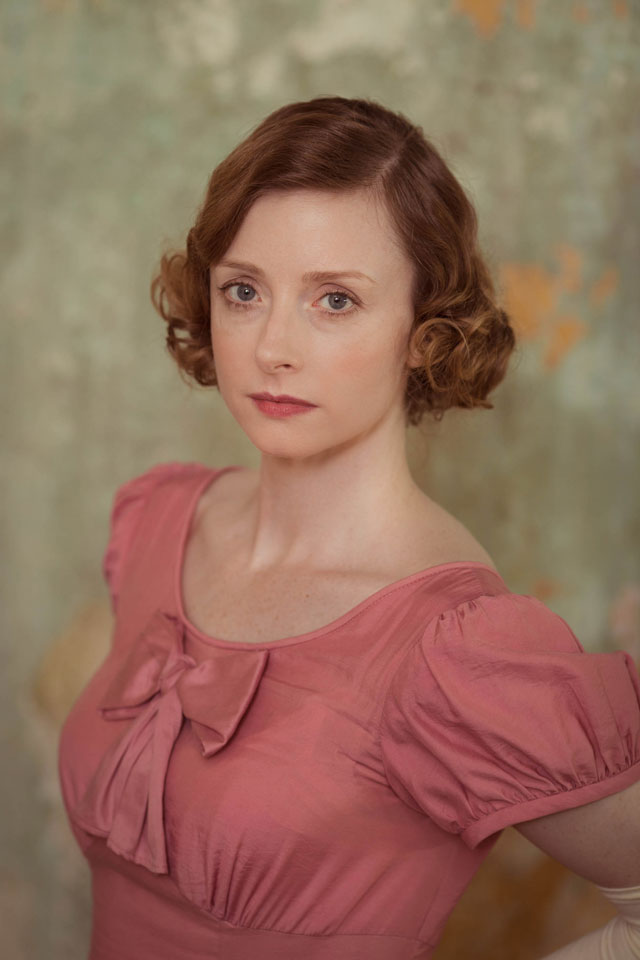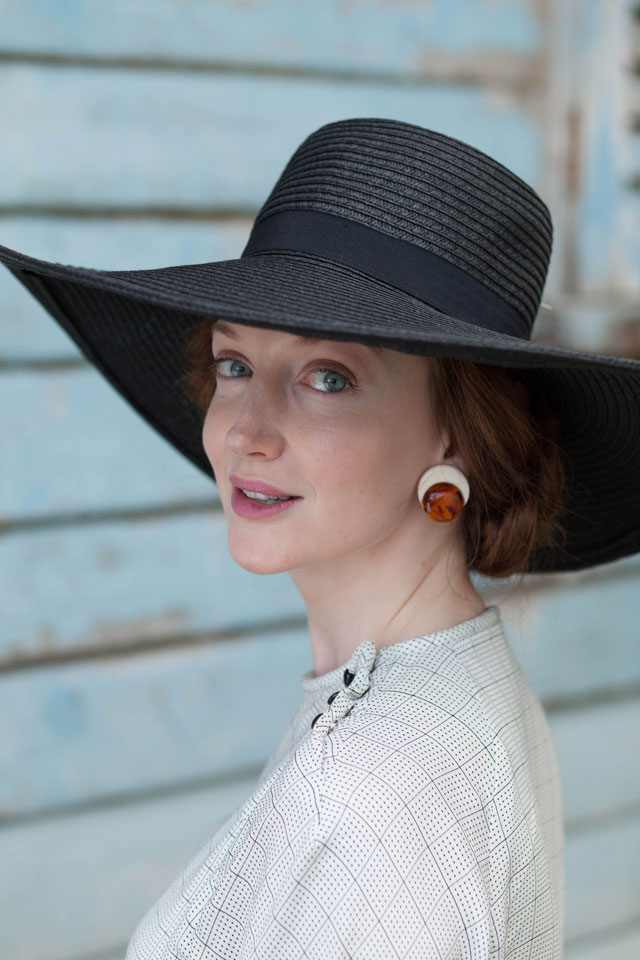Introducing the Characters of Channel 4’s Indian Summers
The real story of Indian Summers begins not in 1932 and the Himalayan foothills of Simla, but a few decades later, in a cupboard in a Darjeeling hotel. It was there that series creator Paul Rutman was shown a hoard of photos dating back to the Raj. This reignited a fascination with India and its hill stations that had smouldered ever since he worked as a young teacher in a southern Indian boarding school.
“I found the atmosphere, the nostalgia, the weather and buildings of hill stations fascinating,” he explains. “And these were photos of people like us, 80 years ago, having tea parties and trying to recreate this idea of England in an environment that wasn’t England. I thought about this whole world being either forgotten or swept under the carpet. Empire is still something that many on the right are quietly proud of, but a source of deep shame and self-castigation from the left. With Indian Summers, I wanted to ride those contradictions. There’s a generation that’s dying out now for whom empire was a huge part of their lives, so I wanted to ask the question: what did we think we were doing out there?”
Meet the captivating character’s of the new 10-part series of Channel 4’s Indian Summers which started Sunday 15 February 2015.
Ralph Whelan played by Henry Lloyd-Huges
The Private Secretary to the Viceroy of India. Ralph’s intelligence and easy charm have seen him rise quickly through the ranks to the very top of the Indian Civil Service but Ralph’s jovial persona belies a ruthless cunning. Unbeknownst to his peers, Ralph has a chequered past, a past he will desperately need to contain if he is to retain his cherished position as the Viceroy’s most trusted advisor.
Aafrin Dalal played by Nikesh Patel
A young Parsi. As the primary earner for his family, Aafrin works in the lower rungs of the Indian Civil Service. This summer changes Aafrin’s life forever as he finds himself being used as British propaganda to destabilise the growing independence movement
Alice Whelan played by Jemima West
Ralph’s younger sister. Alice is a determined and steely young woman who returns to India with her young son in the aftermath of her husband’s death. India opens up a whole new world to Alice and she finds love in the hills of Simla but her newfound relationship, coupled with a revelation about her dead husband, threatens both Alice’s new found happiness and her brother’s ascending career.
Cynthia Coffin played by Julie Walters
As the proprietor of the British Club in Simla, Cynthia Coffin is the Queen of Simla society. Very little happens in this hill station without Cynthia’s prior knowledge or approval. Cynthia is a glamourous woman who lives by her own strict code of ethics. Cynthia has a very close relationship with Ralph and does all in her power to ensure his advancement.
Ian McLeod played by Alexander Cobb
A young Scotsman who arrives in India to help run his uncle’s failing tea estate. Ian’s innocence and naivety are soon tested when he learns that life in India is not as he imagined and he realises that doing the right thing sometimes comes at a very high cost.
Dougie Raworth played by Craig Parkinson
A kind and gentle man who runs the Mission School in Simla, caring for mixed-race children who have been abandoned. Dougie’s dedication to the school may not be entirely altruistic and this devotion is a source of constant friction in his marriage as his wife questions his true motives.
Sarah Raworth played by Fiona Glascott
Dougie’s wife. Her frosty demeanour hides a deep-rooted vulnerability. Sarah leads a lonely life and her desperation for company sees her form an unhealthy obsession with Alice Whelan.
Leena Prasad played by Amber Rose Revah
Dougie’s assistant at the Mission School. Leena is mixed race and fully understands the hardship that this causes for the children in her care. Leena’s love of Dougie is at odds with her deep Christian faith.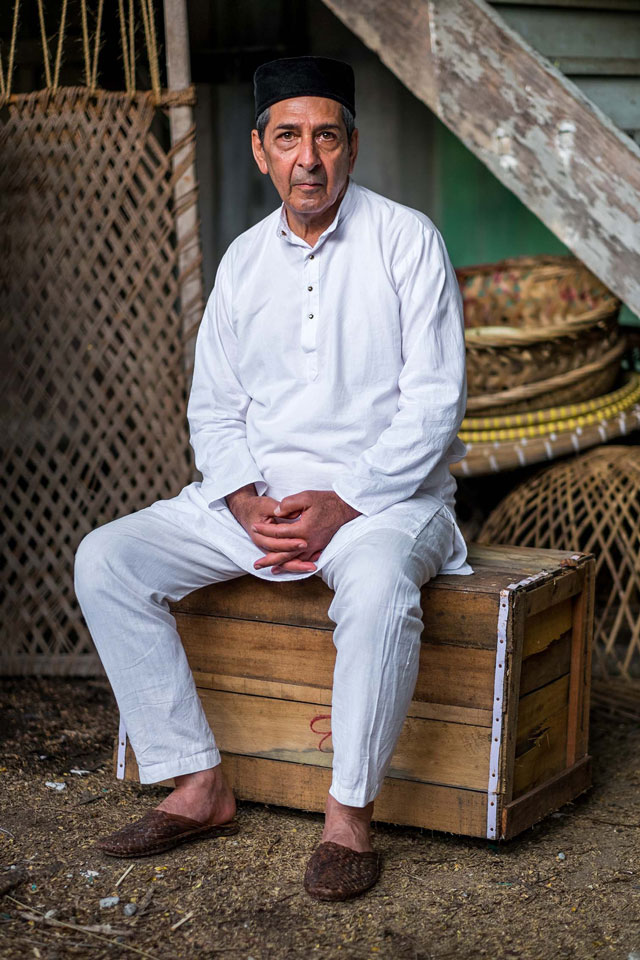
Darius Dalal played by Roshan Seth
Aafrin’s father. He is a kind and liberal family man. Darius was injured in the Great War and has since been unable to work. Darius is an Anglophile, which is the cause of many arguments with his rebellious daughter’s pro-independence views.
Roshana Dalal played by Lilette Dubey
Darius’ wife and Aafrin’s mother. Roshana is a no-nonsense woman and adheres to the strict moral Parsi code which sometimes puts her at odds with her husband and children.
Sooni Dalal played by Aysha Kala
Aafrin’s highly intelligent sister. Sooni is fiercely political and resents Aafrin’s role in the ICS. Sooni wants to become a lawyer and is determined not to let her gender get in the way of her ambitions.
Shamshad Dalal played by Ashna Rabheru
Aafrin’s youngest sister. Shamshad is delightfully innocent child.
Madeleine Mathers played by Olivia Grant
The daughter of a wealthy American industrialist who has arrived in India to look after her sick brother, Eugene.
Eugene Mathers played by Edward Hogg
Madeleine’s brother. Eugene is a successful architect who was taken in by Ralph when he was struck down with malaria whilst working in Delhi.
Catch the next episode of Indian Summers on Channel 4 Sunday 22 March, 9pm.
More on Indian Summers
The real story of Indian Summers begins not in 1932 and the Himalayan foothills of Simla, but a few decades later, in a cupboard in a Darjeeling hotel. It was there that series creator Paul Rutman was shown a hoard of photos dating back to the Raj. This reignited a fascination with India and its hill stations that had smouldered ever since he worked as a young teacher in a southern Indian boarding school.
“I found the atmosphere, the nostalgia, the weather and buildings of hill stations fascinating,” he explains. “And these were photos of people like us, 80 years ago, having tea parties and trying to recreate this idea of England in an environment that wasn’t England. I thought about this whole world being either forgotten or swept under the carpet. Empire is still something that many on the right are quietly proud of, but a source of deep shame and self-castigation from the left. With Indian Summers, I wanted to ride those contradictions. There’s a generation that’s dying out now for whom empire was a huge part of their lives, so I wanted to ask the question: what did we think we were doing out there?”
The story of the aristocracy at the height of empire has been told many times before. Instead, Rutman wanted to shift the focus on to the civil servants, the missionaries, the businessmen – and the families they dragged out with them: those ordinary people who made the administration tick and society swing, even as it became apparent that the imperial game was up. The roots of modern Indian nationalism stretched back to the so-called Indian Mutiny of 1857-8, which signaled the end of the East India Company and the explicit establishment of British rule under the Viceroy.
From that point, says Rutman, the British withdrew from active involvement in Indian life and created their own insular existence within the Raj. Through the 1920s, long-simmering discontent between different segments of Indian society was exacerbated by a deliberate British policy of divide and rule. Several opportunities to withdraw with relative dignity had been spurned, while nationalist figureheads including Gandhi and Nehru languished in prison. By 1932, with the Great Depression biting hard, sympathy for the imperial project was shrivelling at home. Overseas, revolution was in the air and the British experience in India looked destined for a bloody conclusion.
“As we join the story, a new viceroy has been in position for less than a year,” explains Rutman. “Lord Willingdon [the only real-life character in Indian Summers, played by Patrick Malahide] harks back to an earlier era of empire: his response to the rise of Indian nationalism is brutal and repressive, leaving that movement in a state of anger and frustration. Simla was the hub of imperial rule during the summer months, yet there’d also be this crazy Rolodex of dances and social events. The British in Simla are in denial, trying to turn back the clock to a time when things were simpler and everybody knew their place: They were clinging to an idea of decency and optimism that was becoming increasingly fantastical as the mood of the country pulled further away. There’s a great pathos about that last generation of people who were out there. They couldn’t really go home or, if they did, they didn’t really recognise England any more.”
Rutman’s research into this complex, contentious era was necessarily rigorous. A year spent reading histories and memoirs was bolstered by conversations with experts, advice on etiquette from Downton Abbey’s Alastair Bruce and the diary of a 94-year-old neighbour: a former Area Intelligence Officer who lived in the Punjab during the war.
“I showed him the first episode and he corrected me on a couple of details,” recalls Rutman. “There’s a scene there where British play the national anthem on the little gramophone while everyone stands silently, then salutes the king emperor. I watched it being filmed and I could see why he remembered everything so vividly. You could feel the jungle encroaching on this tiny lit candle of British nostalgia.”
The stories at the heart of Indian Summers, are those of three sets of siblings from very different backgrounds: Ralph and Alice [Whelan], Madeleine and Eugene [Mathers], and Aafrin and Sooni [Dalal]. “Seeing the Raj and the move towards independence through the eyes of a younger generation was very important,” confirms Rutman, “Families function in similar ways behind closed doors the world over, but I wanted to offer different perspectives on events without ever making the characters mouthpieces for political positions.”
“The Whelan story is shot through with anxiety about the meaning of home and identity,” he continues. “The Dalals, a family of Parsi Indians, are trying to get by and make do. Madeleine and Eugene represent the outsider’s perspective:America was the new superpower and regarded our obsession with empire as increasingly anachronistic and unjust.”
The personal is as important as the political in Indian Summers: in fact, they’re inseparable. Relationships in Simla are irrevocably coloured by deeply ingrained prejudices of race, caste and class. Aafrin Dalal (Nikesh Patel) courts his parents’ disapproval, having fallen in love with a Hindu girl. The professional and romantic progress of Ralph Whelan (Henry Lloyd Hughes) is being carefully managed by the queen bee of Simla’s social scene, Cynthia Coffin (Julie Walters), who sets him up with the beautiful American socialite Madeleine Mathers (Olivia Grant). The arrival of Ralph’s beloved sister Alice (Jemima West), baby in tow and dangerously modern ideas in her head, disrupts Cynthia’s careful manipulation of events. Alice’s easy assimilation into the upper echelons of Raj life in turn stirs envy in missionary’s wife Sarah Haworth (Fiona Glascott), whose husband Dougie (Craig Parkinson) is tormented by feelings for his friend and helper at the orphanage, Leena (Amber Rose Revah). The intimate romance and tragedy of their stories complements the epic sweep of the wider issues at stake.
“I loved writing for Sarah above all,” says Rutman. “She misses home, doesn’t really know who she is, doesn’t like the fact that she’s down the social pecking order and wants nothing to do with her husband’s work. In a way she’s a villain of the piece, but she’s the most heartbreaking character of the lot and feels instinctively familiar. From Sarah to Alice, escaping a bad marriage in England, the crux of the show lies in those characters who are driving towards freedom and those who try to hold them back.”
While it was vital that these were characters to whom viewers could relate, Rutman was equally keen to emphasise that they and the people around them were products of their era, regardless of their nationality. “Some of the language used [by the British] is appalling, but very much of its time,” he acknowledges. “As shocking as it is to hear, I think it’s important to let the audience draw their own conclusions. We shouldn’t stand in sterile judgement.”
The Indian characters face a different sort of upheaval. The Dalals are part of the highly educated and liberally minded Parsi community, resident in India since the eighth century and seen as go-betweens in the imperial era. Fewer than 50,000 Parsis remain in 21st-century India, yet they were still central to Indian life as late as the 1930s. In the words of Gandhi,“In numbers, Parsis are beneath contempt, but in contribution, beyond compare.” “Indian Summers is an elegy for them as well,” Rutman says. “Both the Parsis and the Brits were, in a sense, endangered communities.”
There is the potential for the story to run over a number series, each set in a watershed summer on the road to partition in 1947. “I love that experience of falling in love with a show over a number of years: the big novel experience,” says Rutman. “It’s the best thing that television can do.

